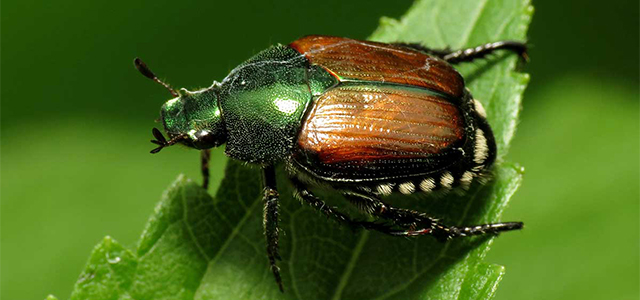
 Canadian Food Inspection Agency introduces new restrictions to prevent spread of invasive beetle
Canadian Food Inspection Agency introduces new restrictions to prevent spread of invasive beetle
The flying season for Popillia japonica (Japanese beetle) is underway and the Canadian Food Inspection Agency (CFIA) has introduced new restrictions on the movement of plant and soil materials to prevent the beetle’s spread.
- The regulated area in Vancouver Image file (1.7 MB) has expanded to include areas in the southwest (W. Boulevard to Dunbar St., W. 49 to the Fraser River) and the northeast (Clark Dr. to Commercial Dr., from E. Broadway to Burrard Inlet).
- There are new requirements for moving material out of the regulated area aimed at preventing the spread of the beetle via plants with soil or soil-related matter attached. For 2023, only plants with soil attached require a CFIA Movement Certificate year-round to leave the regulated area.
Popillia japonica was first detected in BC in the False Creek area of Vancouver in 2017. The beetle can significantly damage landscape and ornamental plants, fruit and vegetable gardens, nurseries, orchards, and crops.
Residents and landscapers are encouraged to keep soil and plant materials on-site whenever possible and continue to use their green bin for yard trimmings. If you are moving plants with soil attached out of the regulated area, contact CFIA (call 604-292-5742 or e-mail [email protected]) to obtain a free Movement Certificate.
Small volumes (maximum one half pickup truck load) of plants with soil attached can be taken to the Vancouver South Transfer Station (VSTS) for disposal, accompanied by a CFIA Movement Certificate. Larger volumes of plants with soil attached must be taken to the Vancouver Landfill for burial.
Resources and more information
- Report suspected beetles External website, opens in new tab and feeding damage.
- Learn more about CFIA movement controls External website, opens in new tab.
- Learn more about the City’s treatment and containment plan.